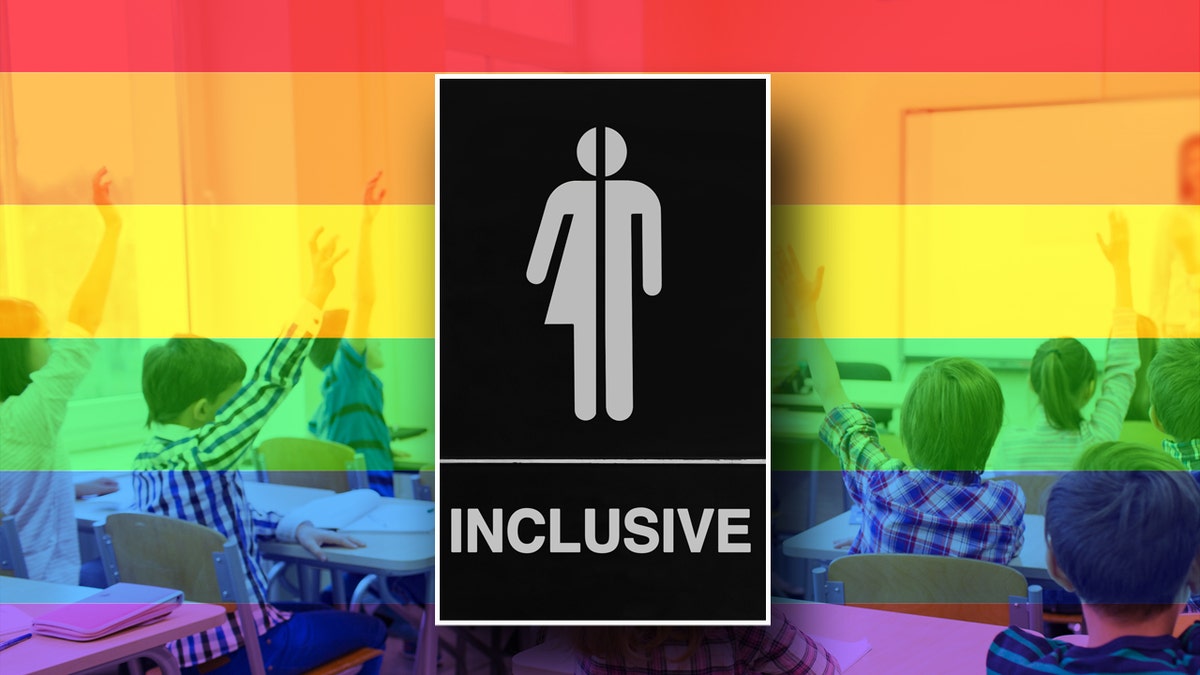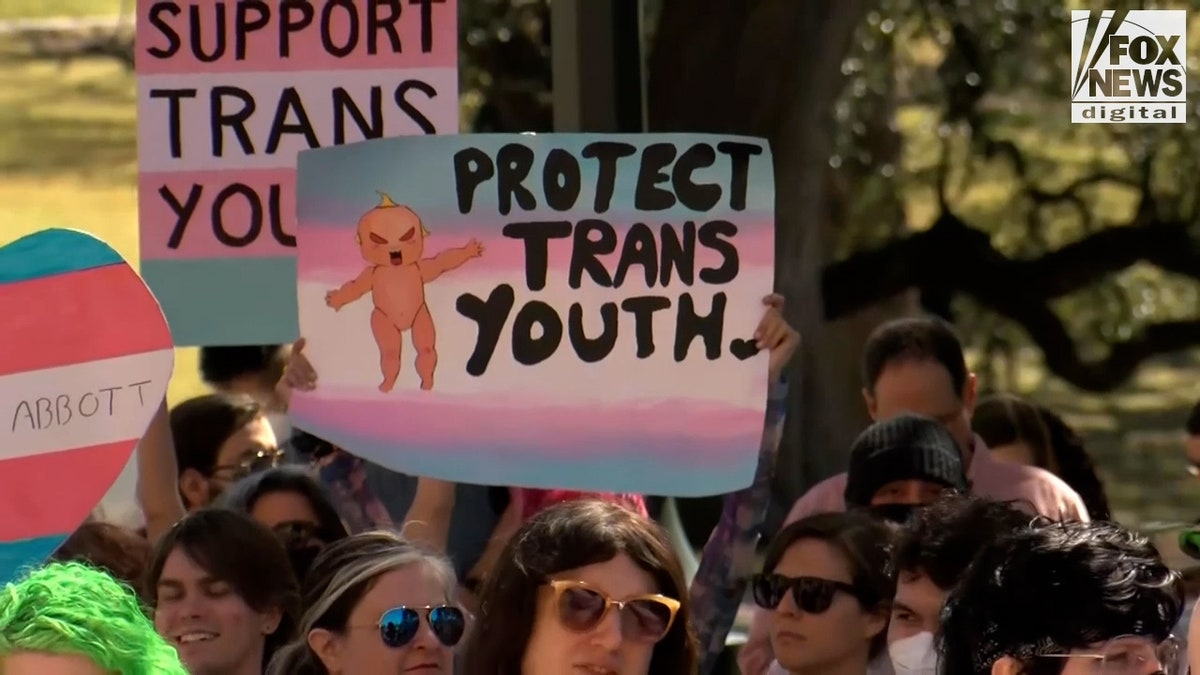Supreme Court can stop trans power grab that is taking away parental rights
States are overruling parental rights and forcing gender transitions. It's time for Supreme Court to intervene
NY Times op-ed argues in favor of child gender transitions: 'Freedom to make mistakes'
California mother Jessica Konen and the executive director of the Center for American Liberty Mark Trammell joined 'FOX & Friends' to discuss their reaction to the article and the broader push against radical gender ideology.
"My child was a number in the system. I don’t want any other parent to suffer and go through what I’ve been going through."
That was the statement of a heartbroken mother, Abigail Martinez, after her daughter took her own life after struggling with her sexual identity for years – and being separated from her mother by the state.
The tragic loss of her child, Yaeli, continues to haunt Abigail years later. Abigail now seeks justice and protection for any family facing the same situation.
Recently, First Liberty Institute submitted a friend-of-the-court brief to the Supreme Court of the United States on behalf of Abigail, urging the court to grant certiorari and uphold parental rights in M.C. and J.C. v. Indiana Department of Child Services. That’s a pivotal parental rights case that is seeking Supreme Court review of Indiana’s decision to remove a child from the home of Christian parents because of their religious beliefs about sexuality.

Transgender bathroom policy in Fairfax County Public Schools in Virginia irks parents. (Fox News Digital)
The experience of M.C. and J.C. in Indiana has many parallels with the trauma Abigail suffered in California, as many states are violating parental rights and targeting people of faith.
During middle school, Yaeli struggled with depression, bullies and other teenage challenges. At 15, she began questioning her sexuality. At school, Yaeli was encouraged to join an LGBTQ club without the knowledge or approval of her mother. Her "counselors" were minors like her struggling with their sexuality. "You are transgender and the only way to be happy is to change your gender," she was told.
At age 16, Yaeli was taken from her home and hidden for two days by the parent of her transgender classmate. The school psychologist brainwashed her into making an accusation of abuse (later proven false), so that Abigail would lose custody and the state would pay for gender-transition treatments without parental consent.
Consistent with her devout Christian beliefs, Abigail affirmed Yaeli’s God-given sexuality as a woman and pleaded with the judge to treat Yaeli’s severe depression. Instead, the state gave her testosterone and took her away from her mom, the only source of support she could always count on.
During supervised visits with her daughter, Abigail was forbidden from talking about her faith. Many harsh words of disdain were spoken to Abigail while she was kept from her daughter.
In one of the regular visits from the trans-advocacy group RISE, Abigail was encouraged to "have a funeral for your daughter and adopt your son." They went on to instruct her not to talk about God for, "if you do that, you’ll never see your daughter."
At 19, struggling emotionally and financially in an independent living environment, Yaeli called the one person who was always there for her — her mother. Abigail dropped everything, took her food and stayed by her side.
But a short time later, confused, depressed and alienated from her mother by the state, Yaeli knelt on the tracks before an oncoming train and ended her life.

Demonstrators protest in support of rights for transgender youth. (Fox News )
After Yaeli’s death, the California Department of Child and Family Services admitted they "aggressively pursued the implementation of inclusive, gender-affirming laws, policies, and supportive services for LGBTQ+ youth," all in disregard of Abigail’s input or religious perspective.
Erasing parents from decision-making about their own child’s struggles and intentions for gender-transitioning procedures is a blatant attack on the family structure and a complete disregard for the religious freedom of those families.
To this day, the state has shown no remorse for its contribution to Yaeli’s death. Like many government entities today, in fact, it continues to fight to destroy the parent-child relationship.
CLICK HERE FOR MORE FOX NEWS OPINION
In our brief to the Supreme Court, we argue that the First Amendment provides robust protection for the religious liberty of families raising children in accordance with their religious beliefs. The state has no jurisdiction over the interpretation of those beliefs.
In one of the regular visits from the trans-advocacy group RISE, Abigail was encouraged to "have a funeral for your daughter and adopt your son." They went on to instruct her not to talk about God for, "if you do that, you’ll never see your daughter."
In fact, parental rights are closely linked with free exercise rights and are especially strong for religious families seeking to teach their faith to the next generation. For nearly 100 years, the Supreme Court has reaffirmed the "enduring American tradition" of the "rights of parents to direct ‘the religious upbringing’ of their children."
In addition, no government official has the right to silence a viewpoint simply because it is religious. In Rosenberger v. Rector & Visitors of Univ. of Va., the court concluded, "The government must abstain from regulating speech when the specific motivating ideology or the opinion or perspective of the speaker is the rationale for the restriction." Abigail was barred from sharing what she sincerely believed would provide hope, peace, and comfort for her daughter who battled depression.
CLICK HERE TO GET THE FOX NEWS APP
Now, the Supreme Court has an opportunity to protect parental rights and religious exercise by granting certiorari in M.C. and J.C. v. Indiana, which would be a significant step toward ensuring that no more parents have to suffer the pain Abigail has endured.
There is, however, a broken heart in the wake of this story that can only find comfort in the arms of God.
Kayla Toney is associate counsel for First Liberty Institute, a nonprofit law firm dedicated to defending religious freedom for all. Learn more at FirstLiberty.org.


